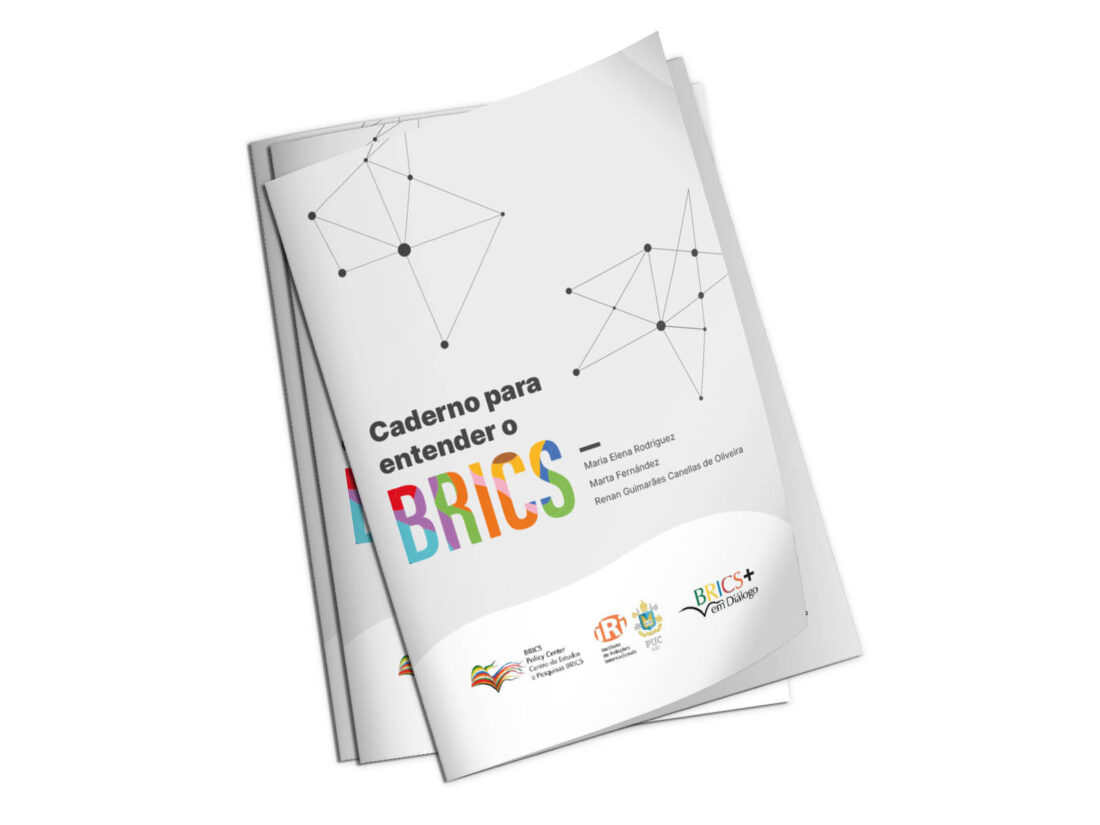
The Handbook for Understanding the BRICS
The Handbook for Understanding the BRICS is the result of the BRICS Policy Center’s (BPC) commitment to democratizing knowledge about world politics and promoting dialogue between different sectors – governments, academia, civil society organizations and social movements – in order to tackle global inequalities. Launched as the BPC approaches its 15th anniversary in 2025, the Notebook consolidates the Center’s trajectory as a space for research and analysis dedicated to the understanding and relevance of the BRICS countries on the global stage.
This Notebook traces the history of the BRICS, from its formation as a group of emerging economies to its expansion in the BRICS+ format. as a diverse and influential bloc, with the common desire to build a fairer and more equitable world order. We also detail the functioning of the BRICS, with emphasis on the annual Summits and the role of institutions such as the New Development Bank (NDB), which finances projects in developing countries and strengthens the financial autonomy of the Global South. We analyze the strategic role of the BRICS in global governance, with emphasis on increasing the voice of developing countries in multilateral forums. We highlight the importance of civil society engagement in this process. In 2025, with the Summit being held in Brazil, the country will play a central role in defining the group’s agenda, in dialogue with the other members.
This booklet sets out to think about the BRICS in interconnection with other multilateral platforms, such as the G20. The issues discussed in the G20, under Brazilian presidency, reverberate in the BRICS, consolidating Brazil’s position as a central articulator in defining an agenda committed to tackling global asymmetries. Following on from the Notebook for Understanding the G20, this material reflects our view that the processes of the different multilateral platforms are in dialogue with each other. Issues debated in one space, such as the G20, often spill over and impact others, such as the BRICS Summit and, certainly later, COP-30, which will be held in November 2025 in Belém, Brazil. These notebooks are not pieces in themselves, but part of an ongoing and interconnected effort to understand and act on the dynamics that affect world politics and the quest for greater global justice.
Written in accessible language, the Notebook is more than a guide: it is an engagement tool for researchers, journalists, social organizations and all those interested in understanding the functioning and strategic role of the BRICS. We hope it will inspire reflection and action that will strengthen the grouping’s role in building a fairer and more inclusive future.
The debate also examined the results of Brazil’s presidency of the G20, the priorities of the future South African leadership and global challenges, with an emphasis on regional dynamics and the repercussions of the US elections.

